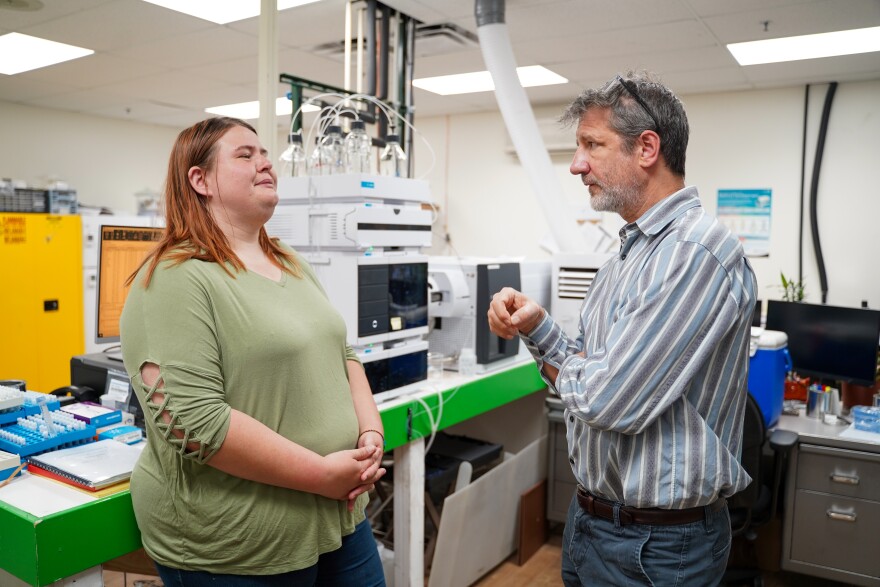Here’s what our tests say.
Ideastream Public Media | By Jeff St. Clair
Published January 30, 2024 at 5:27 PM EST
This is part of a special report on forever chemical contamination in Ohio. Ideastream Public Media reporters spent months investigating the impact of these chemicals to answer the question, “How worried should we be?” New radio stories dropped every Tuesday in January, 2024.
Industrial chemicals have spread throughout our water systems, food sources and into our bodies, according to experts. The chemicals are called PFAS, per- and polyfluoroalkyls, known for their nonstick and waterproof properties. They’re also known as ‘forever chemicals’ because they do not easily break down in the environment.
These chemicals are so widespread that nearly every person in America has some PFAS in their blood, according to the Centers for Disease Control and Prevention.
How worried should we be?
Understanding what that means for our health is not easy. Not everyone with PFAS in their bodies will get sick, the CDC points out.
The risks associated with PFAS depend on many factors: How a person is exposed and to how much and for how long matters, according to the CDC. As does an individual’s sensitivity to the chemicals and other determinants of health like the quality of health care a person receives.
Scientists are still learning about the health effects of exposure to mixtures of different PFAS present in the environment over a lifetime.
One way they’re doing that is through animal studies. Those studies have found PFAS can cause damage to the liver and the immune system and cause low birth weight, birth defects and delayed development in lab animals.
But the CDC said the results of animal studies, while important, don’t necessarily translate to human outcomes because test doses of PFAS are generally higher than doses people experience in the environment and people and animals react differently to PFAS.
How did they get there?
Experts say PFAS are present in the food chain, including in freshwater fish, and they’ve been found in nearly half of the nation’s tap water, according to a study by the U.S. Geological Survey.
PFAS are also present in many common consumer goods: stain-resistant furniture, certain brands of dental floss and some waterproof makeup to name a few.
Ideastream Public Media wanted to find out whether PFAS were in some common items, so we launched our Forever Chemicals Test Kitchen to see for ourselves.
We used two analytical methods to determine whether these chemicals linked to so many health problems are present in nonstick skillets, makeup, waterproofing sprays and fast food wrappers — all sourced in Northeast Ohio.
One test of solid product samples submitted to Summit Environmental Technologies, a lab in Cuyahoga Falls, did not detect PFAS, but a much more sensitive testing method detected forever chemicals in our samples.



